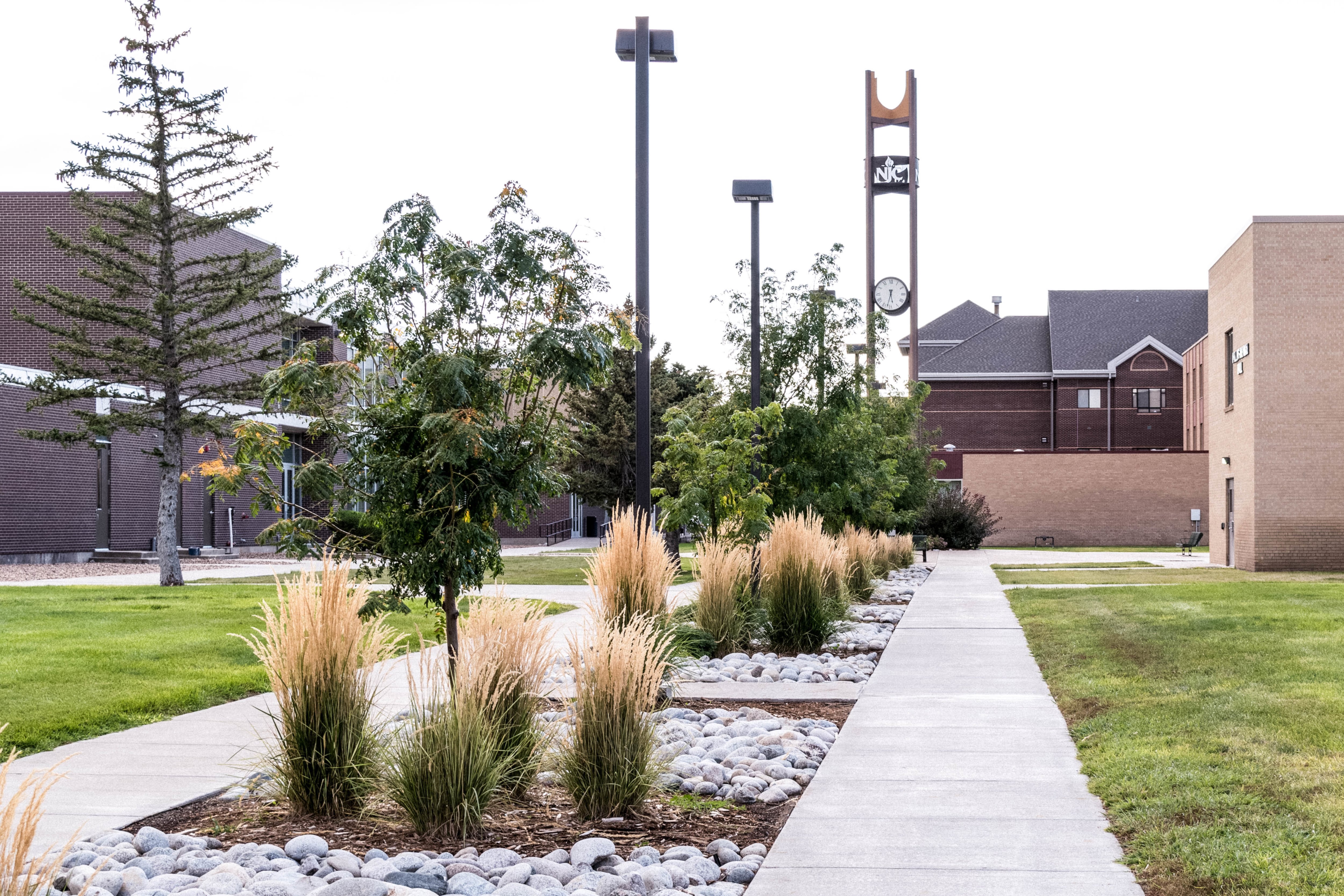Colorado lawmakers and college officials hope a name change will help reverse years of sharply declining enrollment at two rural campuses, and in turn, also help support the towns they serve.
The change, requiring legislation, would remove the “junior” from Otero and Trinidad State junior colleges. The bill would leave Northeastern Junior College as the last remaining higher education institution bearing the name in the state — and one of the few left in the country. Its enrollment has declined 48% in a decade, but community backlash over the proposed name change caused legislators to exclude the college from the bill.
While a simple fix, officials hope the removal of “junior” will have a big impact when it comes to marketing the two schools to prospective students.
College officials at the schools for years have complained that the antiquated term has hampered recruiting and given potential students an erroneous impression of being less than a full-fledged college.
Colorado Community College System Chancellor Joe Garcia said the coronavirus pandemic has placed the state’s junior colleges at increased risk. Although the state will continue to supplement the school budgets to counteract enrollment declines, Garcia said they need to thrive as important parts of the economic ecosystem of the small towns where they reside.
The name change represents only one part of a greater effort to make the schools successful, he said. The state has begun narrowing the subjects they offer to those that have the most potential to lead to good jobs, in areas such as nursing, energy, and information technology.
“This is just one part of the bigger process that we know we have to do,” Garcia said.
The bill, which originally included changing the names of all three schools, would rename the two schools this year to Otero College and Trinidad State College. Otero is in La Junta, in the southeastern plains, and Trinidad is in the southern Colorado town of the same name, near the New Mexico border.
Colorado’s three junior colleges are the oldest in the community college system, Garcia said, and numerous other state schools have undergone name changes.
While prominent in the early 1900s, junior colleges have mostly vanished. Across the nation, only 15 colleges still carry the junior within their name, which is another name for community college. Typically, the schools are non-bachelor’s-degree granting institutions, although Colorado has approved them awarding bachelor’s degrees.
College officials, of course, can’t say whether, when, or by how much the name change will increase enrollment. But they hope it will halt, if not reverse a trend.
Over the past decade, enrollment at the junior colleges has dropped off dramatically. The coronavirus has caused numbers to dip further.
Enrollment declined by more than 43% at Otero and by 31% at Trinidad State. Otero’s student population has dwindled from 1,823 students in 2010 to 1,039 in 2020. Trinidad’s student population has dipped from about 1,916 students to 1,317 during the same time period.
And Northeastern enrolled 2,214 students in 2010. This year, the college has about 1,137 students.
In Colorado, the state’s junior colleges and community colleges rely much more on state funding than on tuition, unlike the state’s four-year institutions. But increasing enrollment would help overall budgets and thus help prop up the schools, Garcia said.
Bill sponsor state Sen. Cleave Simpson, an Alamosa Republican, said the enrollment struggles at the schools mirror the struggles of rural colleges across the country where attracting students to remote areas can be difficult.
Simpson said changing a name might better the schools’ chances of survival. That’s important, he said, because the communities they serve depend on the schools.
The campuses not only offer needed job training, but also add art, theater, and a sense of cultural significance to their communities, he said. Some cities rally around their college’s sports teams and thrive with the economic boost from college students and employees.
“I want to make sure rural Colorado stays relevant and resilient going forward and these institutions play such an integral role in that,” Simpson said.
In one community, however, the name change sparked backlash. After a community survey showing opposition to dropping “junior” from its name, lawmakers decided to remove Northeastern Junior College from the bill.
School President Jay Lee said he’s sought for six years to get the name changed. Over time, the area’s graduating high school population has dwindled, leaving fewer potential Northeastern students in Sterling, located in Colorado’s Northeastern plains.
“For potential students that are from beyond our immediate area, they often ask the questions: What’s a junior college and how is that different from community colleges? How is that different from a university or, even, is a junior college a real college?” Lee said.
Lee said selling the school’s small-town setting already can pose recruitment hurdles, but the name intensifies the issues. He added that hiring more recruiters to explain how a junior college serves students doesn’t make sense for an already cash-strapped college, even if the school has plenty to offer, including sports and small communities that welcome students, he said.
Lee hopes the community will reconsider the name change, to allow Northeastern to more easily explain its mission.
“I do hope that we will be able to drop the word junior from our title,” Lee said, “because after this legislation, which does look like it will go through, we will be the last junior college in the state.”








